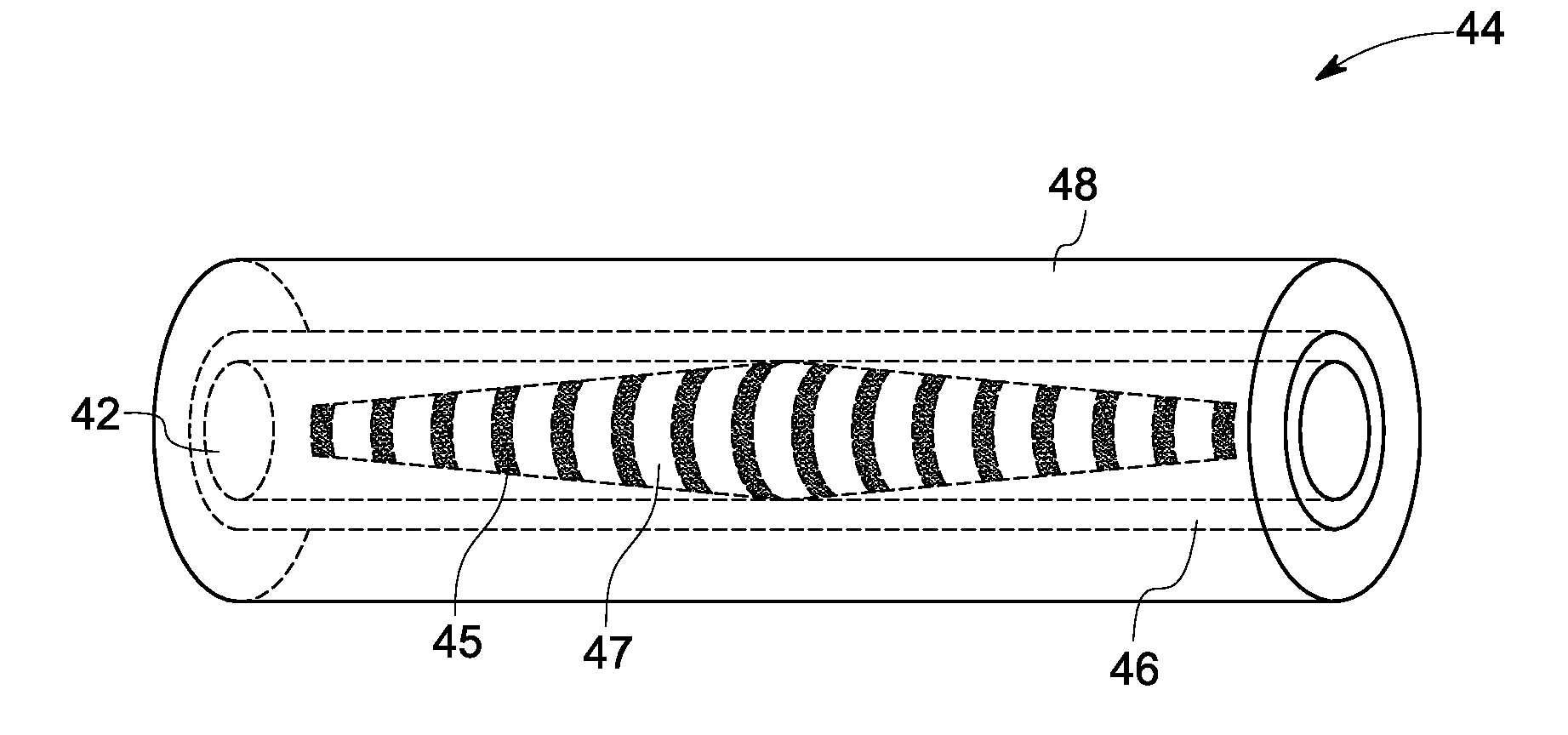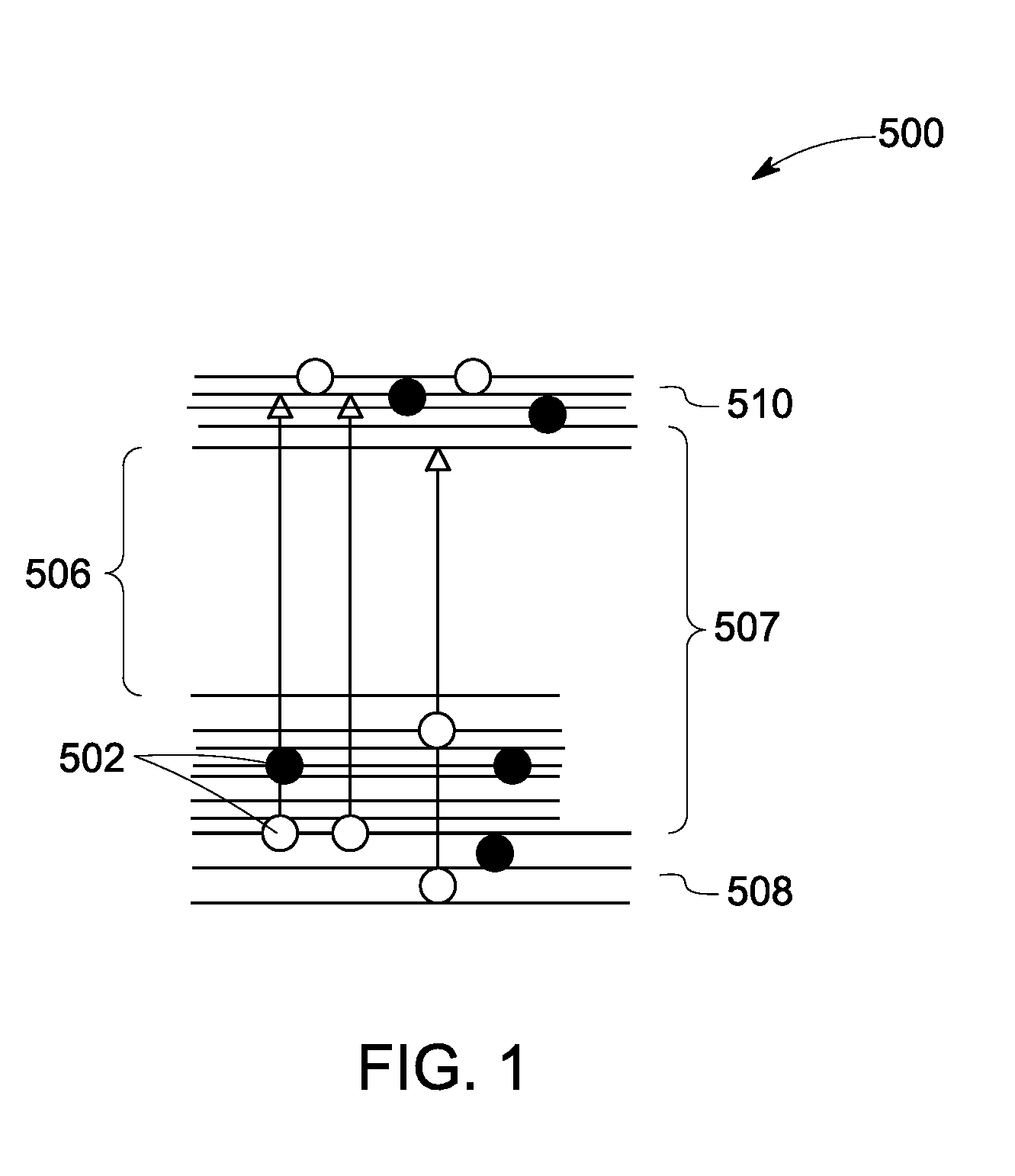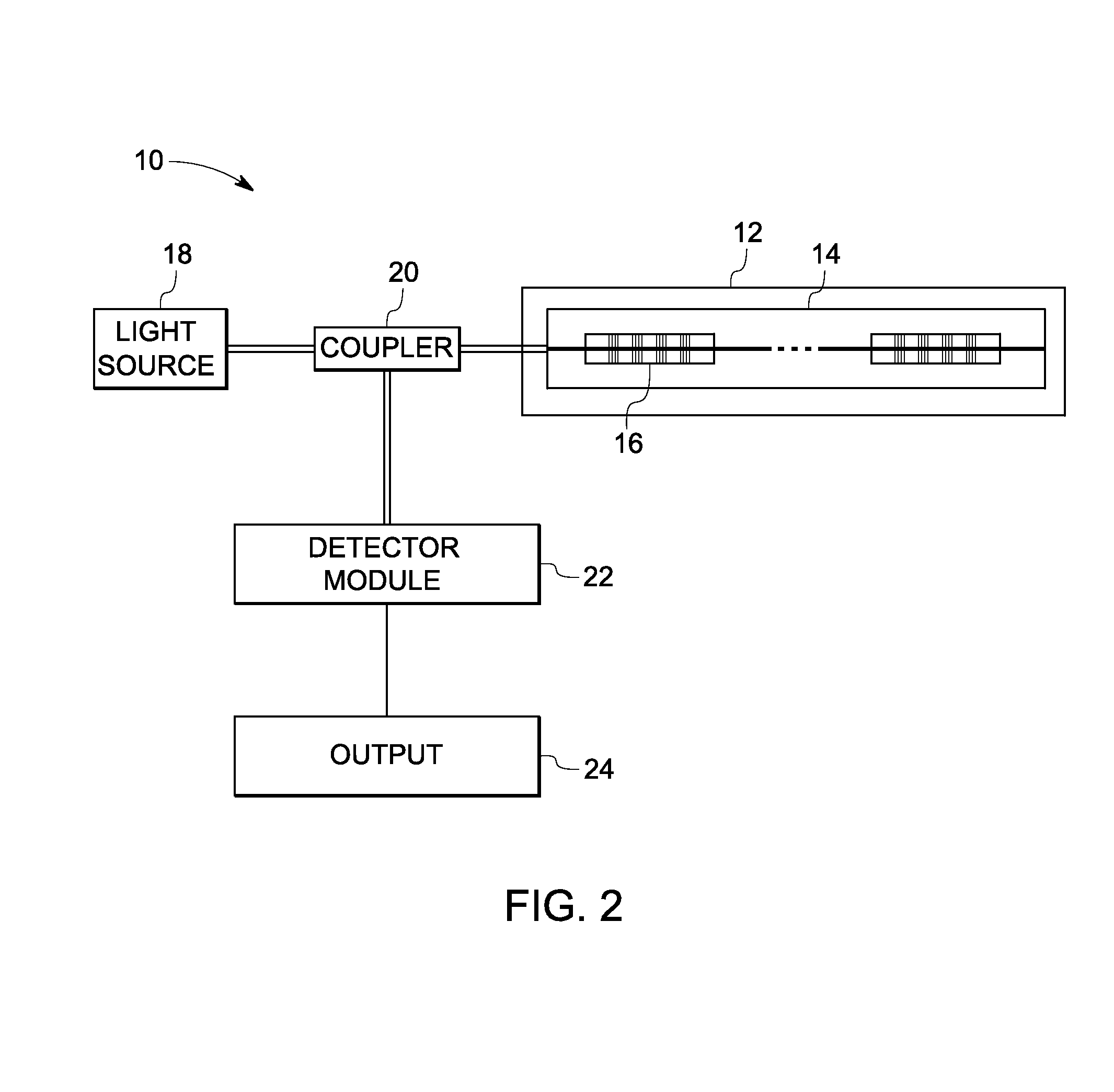Fiber bragg grating for high temperature sensing
a technology of fiber bragg grating and temperature sensing, which is applied in the direction of heat measurement, instruments, manufacturing tools, etc., can solve the problems of undesirable thermal instability of ultraviolet light-induced fbg sensors, and achieve the effects of enhancing photosensitivity, enhancing an amorphous network crosslink mean coordination number, and enhancing photosensitivity
- Summary
- Abstract
- Description
- Claims
- Application Information
AI Technical Summary
Benefits of technology
Problems solved by technology
Method used
Image
Examples
examples
[0053]The examples that follow are merely illustrative, and should not be construed to be any sort of limitation on the scope of the claimed invention.
[0054]FIG. 10 is a graphical comparison 80 between an exemplary reflection spectrum 82 obtained from a thermal stabilized nanocrystalline fiber Bragg grating (NFBG) sensor, fabricated with above processes, and a reflection spectrum 84 obtained from a its initial Type-I-like grating. In the illustrated embodiment, the X axis 86 represents wavelength measured in nanometers and the Y-axis 88 represents a reflected power loss measured in decibels (dB). A peak reflected power loss represented by reference numeral 90 corresponds to a fiber core guided mode of the fiber optic sensor 30, while a peak referenced by numeral 92 represents a fiber core guided mode of the commercial Fiber Bragg grating based sensor. As illustrated, a wavelength shift of about 2.87 nm occurs between the peaks 90 and 92. Further, the power loss in the fiber optic se...
PUM
| Property | Measurement | Unit |
|---|---|---|
| temperature | aaaaa | aaaaa |
| temperature | aaaaa | aaaaa |
| temperatures | aaaaa | aaaaa |
Abstract
Description
Claims
Application Information
 Login to View More
Login to View More - R&D
- Intellectual Property
- Life Sciences
- Materials
- Tech Scout
- Unparalleled Data Quality
- Higher Quality Content
- 60% Fewer Hallucinations
Browse by: Latest US Patents, China's latest patents, Technical Efficacy Thesaurus, Application Domain, Technology Topic, Popular Technical Reports.
© 2025 PatSnap. All rights reserved.Legal|Privacy policy|Modern Slavery Act Transparency Statement|Sitemap|About US| Contact US: help@patsnap.com



